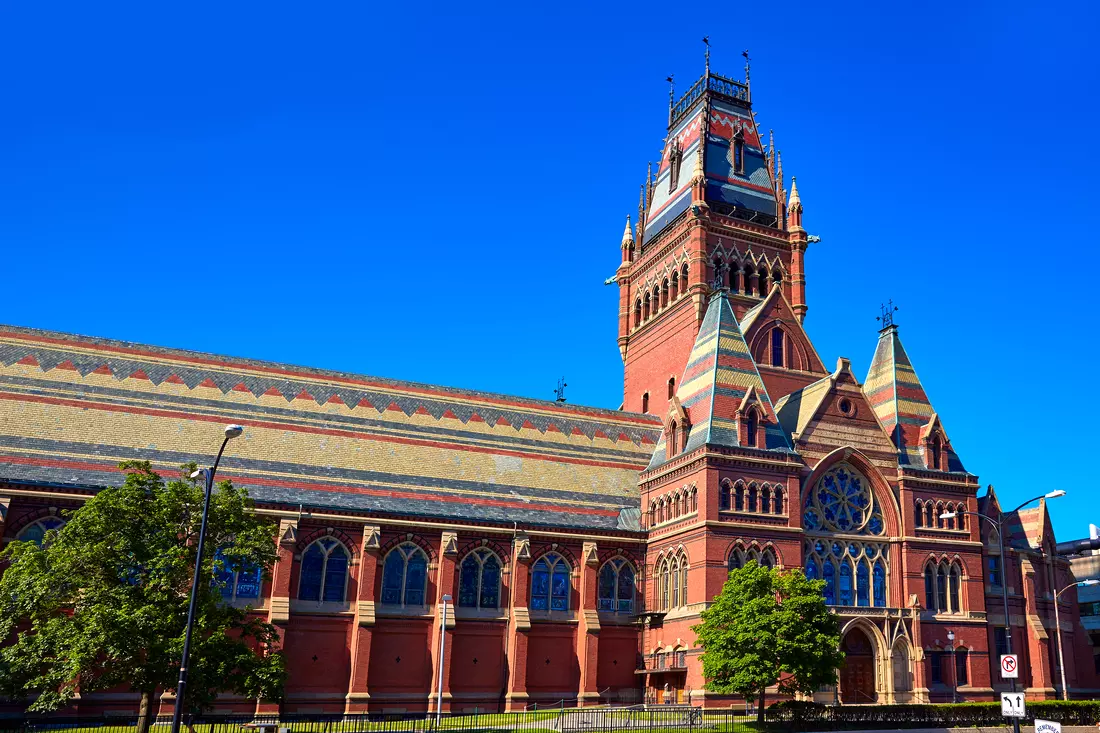Higher education in the United States, according to the results of various rating studies, is considered the best in the world. One can argue about bias, cite other effective training schemes as an example, but it is worth recognizing that higher education here is at an excellent level, gives a pass to the heights of a career, is recognized all over the world, except for a small number of countries.
US university graduates run corporations, conduct scientific research, descend into volcanoes, explore Antarctica, fly into space, develop space programs, develop new drugs, build skyscrapers, and develop conceptual spaces.
Students in the US also have the opportunity to participate in practical programs and internships that can be included in their curriculum. This gives them valuable work experience in their field and helps prepare them for a career after graduation.
There are many private and public universities in the US. Public universities are usually larger and offer lower tuition fees for students living in the same state. Private universities can be a bit more expensive, but they also offer various forms of financial aid and scholarships.

Getting an education in America today attracts many people. American Butler will help you fulfill your dream of graduating in the USA.
Stages of study at US universities
The higher education system in the United States offers students a wide range of opportunities to receive quality education and expand their horizons. It is built in 4 stages:
- associate degree;
- undergraduate;
- magistracy;
- graduate school.
A bachelor's degree is already evidence of higher education. You can immediately get an enviable position in the US. The Master's degree is focused more on improving knowledge, and the last stage, Doctor of Philosophy, allows you to teach and conduct research activities. A similar scheme began to be introduced in the Russian Federation at the beginning of the twenty-first century. However, unfortunately, the national bachelor's degree is still perceived by many members of society as an unfinished education. Employees of the personnel departments of large corporations for a position requiring an applicant with a higher education are reluctant to take a bachelor's degree.
- 01. Associate Degree
This is the initial level of higher education, which usually takes two years. This degree is often offered at community colleges or junior colleges and can form the basis for a bachelor's degree.
- 02. Bachelor's Degree
This is a four-year degree that represents the main higher education in the United States. You can enter a bachelor's degree at one of the US universities with a certificate obtained in the Russian Federation or Kazakhstan. The study lasts 4 years. Young people choose a specialty after studying for 2-4 semesters.
There are no rigid boundaries of specialization in universities. There is a list of compulsory subjects, and other disciplines are chosen by students individually. There is no stable division of students into groups. The main disciplines in the future specialty are taught in the 3rd and 4th years. Entering one of the universities in America, applicants note significant differences compared to domestic universities. So, the "Unified State Exam" after school is missing here. Of course, the required documents and terms also differ.
- 03. Master's Degree
After the master's degree and defense of the diploma, the student is awarded the title of master. This degree can only be earned at one of the universities. Although the concept of education is in many ways similar to undergraduate studies, its saturation is much higher.
There are 2 basic programs for the preparation of masters:
- for professional areas;
- for students planning to continue their studies in graduate school and devote themselves to science.
Upon admission to the magistracy, a diploma of higher education is required.
- 04. Postgraduate studies / Doctoral Degree
This is the highest level of academic education in the United States. A doctoral degree requires several years of research after completing a master's degree.
Talented young people who want to build a career as a scientist or teacher go to graduate school. You will have to study for four to six years. The student receives the title of Doctor of Philosophy or Doctor of Science, which is equivalent to the Russian title of Candidate of Science.
In many universities, it is allowed to enroll in doctoral studies, having completed only a bachelor's degree.

Requirements for applicants
Regardless of the level of education you choose, the process of applying to American universities can be difficult and require advance preparation. It is important to know the requirements:
- 01. Academic requirements
Most universities require secondary school applicants to complete high school diplomas and grades in certain subjects. For admission to master's or doctoral programs, a bachelor's or master's degree is required.
- 02. Language requirements
Since the training is conducted in English, it is necessary to prove language proficiency. This is usually done through TOEFL or IELTS.
- 03. Standardized tests
Depending on the level and specialization of study, the results of standardized tests, such as SAT or ACT for undergraduate studies, GRE or GMAT for graduate programs, may be required. To study at a university, they take tests (GRE, GMAT, SAT). You need to get a high score for them, as well as have a quality letter justifying the uniqueness of your candidacy. To study for free, you need to worry about a scholarship or grant in advance.
Stages of submission of documents
- 01. Document preparation
This includes collecting all required academic documents, passing the required tests, and preparing personal statements or essays.
- 02. Applying
This process usually begins a year before the planned start of studies. Many universities accept applications through common application systems such as Common App or Coalition App.
- 03. Waiting for a decision
After submitting your applications, you will need to wait for the decision of the universities. This may take from several weeks to several months.

How much does it cost to study at US universities
First of all, think about the "issue price". Higher education in America is paid, although such investments are certainly justified. The costs will pay off literally in the first years of work, since graduates can immediately apply for highly paid positions. The cost of higher education in the United States starts at $30,000 per year. You can study without paying with the help of:
- Scholarships based on study results
Many universities offer merit-based scholarships that can cover some or all of your tuition fees. These can be academic scholarships, scholarships for athletes or scholarships for talented art historians. Outstanding athletes are trained free of charge. In the United States, athletic scholarships are paid, but they are only given for one year. The scholarship period can be extended after the end of the season if the athlete improves his initial performance.
- Grants for insolvent students
Grants are a form of financial assistance that do not need to be repaid. They may be provided by the state, universities or private organizations.
- Payments provided by universities
Some universities offer financial aid to students whose families cannot afford the full cost of tuition.
- Student loans
An important feature of studying in the USA is the credit system. This means that students choose the subjects they want to study each semester and receive credits for each course they take. Such a system allows students to have more freedom in choosing their curriculum and following their interests. If scholarships and grants do not cover all costs, student loans may be an option. However, it is important to remember that loans will need to be repaid after graduation.
Such subsidies will be able to fully or at least partially cover your financial investments.
Universities and colleges are usually privately owned. Therefore, the cost can be very significant, depending on the rating of the educational institution. The most popular American programs:
- Fulbright;
- Edmund Muskie scholarships;
- AAUW Foundation.

Student Life: Campus, Organizations and International Opportunities
Student life in the USA is not only about studying. It's also a time to explore new interests, meet new people, and get actively involved in campus life.
- Life on campus
Most American universities offer campus life, which creates a unique community atmosphere and opportunities for active participation in university life. The campus usually has dormitories, canteens, sports centers, libraries, research centers and various places for recreation and study. This creates a unique atmosphere and offers students many opportunities to study, relax and socialize.
- Student organizations and clubs
There are many student organizations and clubs that students can participate in. It can be professional organizations, sports teams, interest clubs, volunteer groups and much more. Participation in these organizations not only gives students the opportunity to explore their interests, but also provides valuable teamwork and leadership experience.
- Opportunities for international students
International students also have many opportunities at American universities. Most universities have offices for international students that help with visa issues, accommodations and other issues. Many universities also offer special programs and activities for international students to help them adapt and excel in their studies.
When studying at US universities, the right to participate in a student exchange project is granted. Such a program involves coordination between universities for an internship or study for 1-2 semesters. Russian students live in a studio. town or host family.
All in all, student life in the US is a time for academic growth, exploring new interests, and building long-term connections. With many resources and opportunities available, each student can make their experience unique and rewarding.

Why choose the USA for higher education
Indeed, many choose to study at universities for reasons of prestige and with an eye on a future career.
- The best universities in the United States are taught by recognized professionals in their field, non-standard thinking is welcome, solving problems of various types, and a creative approach is developing. This applies not only to the humanities, but also to mathematical and technical disciplines.
- Universities provide practical training for specialists in various, most demanded areas. Students perform real tasks already during their studies and gain significant work experience in their profession by the time they graduate.
- Graduation theses are often real scientific research, talented students receive the necessary publications to continue and develop their careers.
- For enthusiastic students, colleges provide maximum opportunities for development. There is an opportunity to choose teachers, supervisors, the initiative of students is encouraged in every possible way.
- If you are only interested in questions of prestige, you can study to a minimum, adhering to the given limits, without particularly straining. However, in these cases, you will have to pay the full cost of training.
- At prestigious universities, students acquire new and useful acquaintances. The caste system of elites in America is not as pronounced as, for example, in England. But to say that origin and family are absolutely not important, only knowledge is significant, it would not be true.
- Large companies are interested in talented students at the training stage and provide internship opportunities, awards, scholarships, study tours and seminars.

Benefits of higher education in the USA
Every year, the universities of the planet compete for leading indicators. According to the current rankings, 7 out of 10 positions are occupied by American universities, among which Florida colleges are in worthy places.
US universities are a guarantee:
- a rich choice of professions;
- modern technical equipment;
- opportunities for scientific activity;
- practice and effective internship;
- relationships with industry leaders;
- your diploma will be recognized internationally and in any country in the world;
- great prospects.

Ready to start your journey to higher education in the USA?
Graduating in the US can be a life-changing experience, full of new knowledge, opportunities and discoveries. If you are ready to start this exciting journey, we are here to help you every step of the way. Our experts will help you navigate through the admissions process, program selection, and preparation for life at an American university.





























